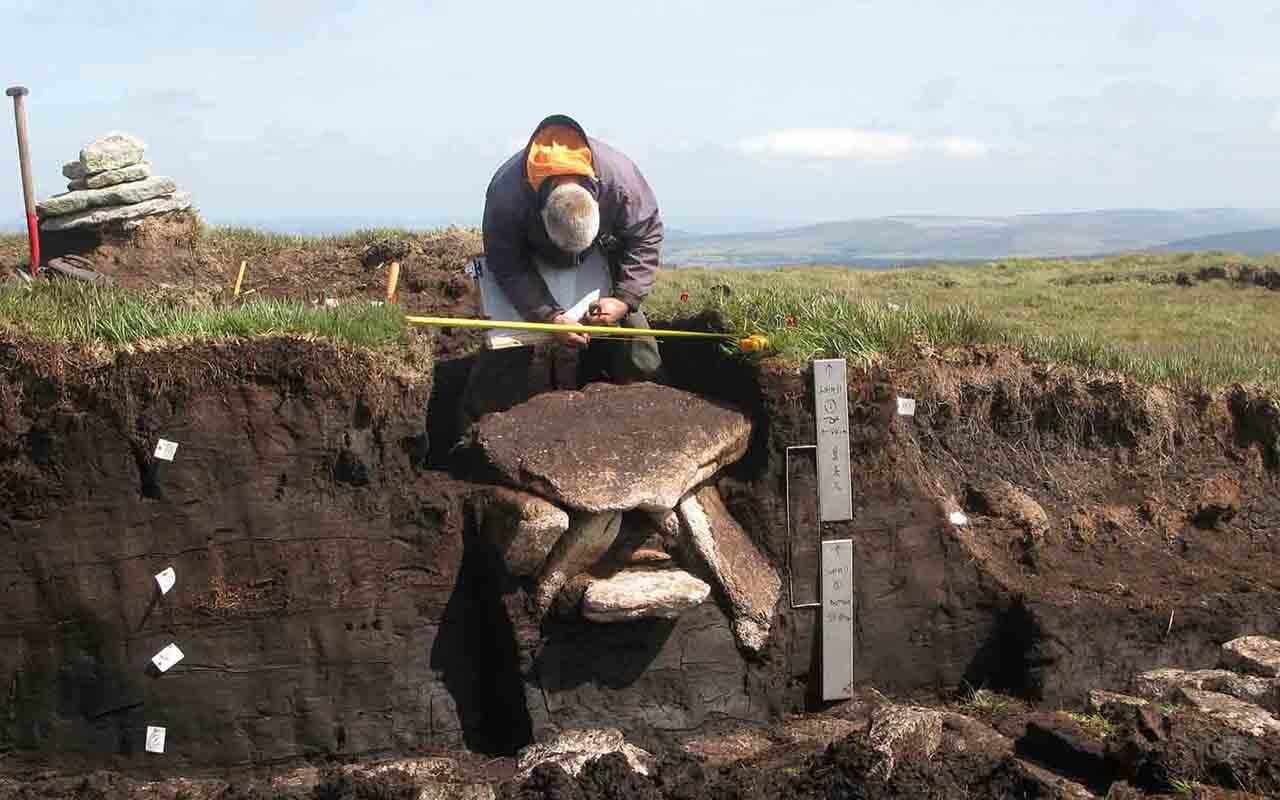Archaeologists have uncovered a Bronze Age burial chamber on Dartmoor, England.
 The discovery could be as significant as the one found at Whitehorse Hill site. Credit: Dartmoor National Park Authority
The discovery could be as significant as the one found at Whitehorse Hill site. Credit: Dartmoor National Park Authority
The find, estimated to be around 4,000 years old, has sparked comparisons to the significant discovery made at Whitehorse Hill in 2011, where the remains of a young woman dating back to approximately 1700 BCE were unearthed.
The Dartmoor National Park Authority has allocated £90,000 for the excavation, drawn from its reserves. The new chamber, believed to be a cist—an ancient coffin or burial chamber—was unearthed approximately two years ago due to peat erosion, but its exact location remains undisclosed to safeguard it from tampering.
Dr. Lee Bray, an archaeologist involved in the project, said: “We have every potential for this to be something quite special… All the evidence we have points to it being a cist from the early Bronze Age.” He emphasized the need for careful consideration in determining the chamber’s fate.
Concerns about the erosion of the peat, which could compromise the integrity of the site, have prompted the decision to excavate. Dr. Bray dismissed leaving the site untouched as poor archaeological practice, noting the gradual deterioration of the contents. Specialized equipment, including helicopters and laser scanning tools, will be necessary due to the remote location of the site, far from accessible roads.
Chair Pamela Woods expressed the authority’s enthusiasm for the project, declaring, “It’s so exciting. We can’t do it. We are enthralled by this.”





